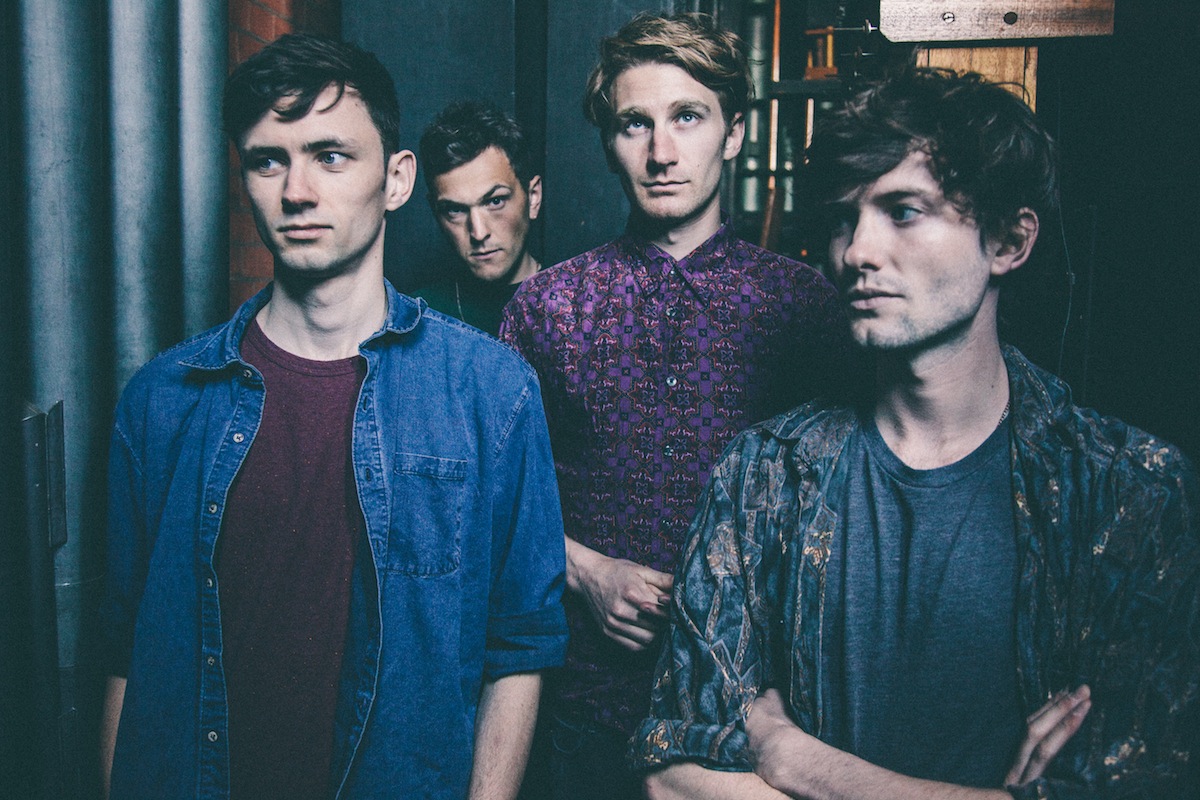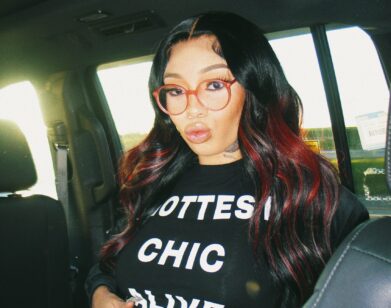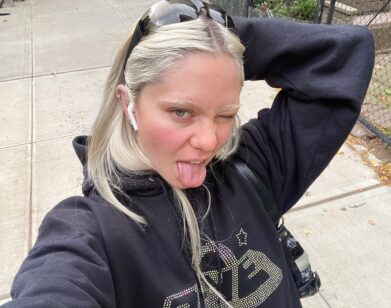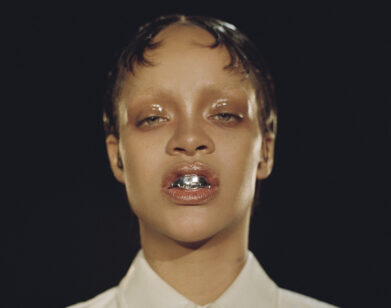The Glass Menagerie

ABOVE: GLASS ANIMALS. PHOTO COURTESY OF LIAM CUSHING.
Describing the Oxford-based fourtet Glass Animals is no easy feat—their distinct sound combines myriad influences, from R&B and hip-hop to electronic and psychedelic rock, all anchored by frontman Dave Bayley’s sultry, smooth vocals. There is nothing else that sounds quite like it, and that’s a good thing. The effect of their music is almost hypnotic, drawing you into their hazy sonic soundscape with wobbling bassline, thumping beat, and slow croon—the listener becomes immersed in their world. This week marks the release of their highly anticipated debut album, Zaba, a brilliant collection of tracks that are eccentric, intricate, and emotive.
We caught up with the band’s drummer, Joe Seaward, just ahead of their New York debut, and talked about how the boys all became friends and decided to start a band, and what it was like recording their first album.
ALEXANDRA THURMOND: So you guys have all been friends since you were young, right?
JOE SEAWARD: Yeah, we all met when we were in grade school—from about the time that we were 14. We were the kids who liked music that wasn’t quite the norm, and we would all hang out and go see shows together.
THURMOND: Was there ever a show that you guys saw that made you want to start a band?
SEAWARD: It was never really a dream to become a band; we didn’t really think about it. We did see some amazing shows though. Me and Dave saw LCD Soundsystem at this music festival, and it kind of blew our minds. We were really young, like 16, and got a bit smashed and watched that and just thought it was brilliant. But we never really said, “Oh, we want to be musicians.”
THURMOND: So when did you guys start making music?
SEAWARD: We were all back home for Christmas from university one year and Dave just told us that he’d written two songs. After he played them, I remember me and Drew being like, “This is really cool.” And then Drew worked on them with him a bit and tweaked them around, and Dave just asked if we wanted to be in a band. We all said yes without really thinking anything of it. And then we put the songs up on MySpace, because that was the big thing at the time, and we started getting a lot of plays and people were emailing us about the music. It all just kind of happened.
THURMOND: But you all went back to school after that?
SEAWARD: Yeah, we didn’t really even know anyone in a band or how to be a band. And we all wanted to finish university, so we took the songs down and all went back and focused on school, and kind of worked on this on the side. And then when we finished university, we decided to give ourselves a year to work on the music and just see what happens.
THURMOND: And things ended up going quite well, obviously.
SEAWARD: Yeah, it just kind of started happening. We put some songs out, and the first EP, and it kept getting better. And we just decided to keep going with it, and now we’re here.
THURMOND: Have things changed a lot from recording those first songs and EPs to working on the album?
SEAWARD: At the beginning it was really quite introverted, and I think quite self-conscious, like, “What will my friends think of this?” Because it’s quite a personal thing, making music or any kind of art. But over the course of time, we’ve all gotten much braver and more confident about it. We feel like we can be more bold and really turn things up. The early demos are kind of spacey and ambient, but I feel like the later songs on the record are much louder and bolder in a way, which is really cool. It’s much more fun to make music like that, where you can be like, “This bit is great, let’s really milk it and let people know that it’s there.”
THURMOND: What was it like recording the album in London?
SEAWARD: It was a lot of fun. Coming into the studio, we were all really open and just wanted to experiment and not be afraid to get stuff wrong. The learning process of everything was quite fun.
THURMOND: Do you have any favorite memories from that time?
SEAWARD: There was loads of stuff that happened that I think is really funny but probably wouldn’t be to anyone else. We’re all just such good friends—it was really intense, but really new and cool. We’d never spent that much time just focusing on the music before.
There was one song that we recorded and Dave kind of wanted it to have a tropical vibe. And he kicked all of us out of the studio and dimmed the lights and set up some other weird glowing lights and dressed up the room so he could really get in the zone— and he grabbed a pineapple and held it while he was recording the vocals. But he kicked us out, so we didn’t get to see it. [laughs] It was really fun, but quite uneventful, I guess—just men in a dark room for long periods of time.
THURMOND: The album name, Zaba, is really great—where did that come from?
SEAWARD: We went into the recording process with the idea that we wanted to create a record that you played from start to finish and really get taken on a journey. You start at one place and are taken somewhere completely different. And Dave brought up this book he’d read as a child called The Zaba Jaba Jungle that is about a kid who walks into the jungle and has all of these crazy adventures. He rides on a butterfly and plays with monkeys, and just loads of crazy stuff. And the idea of a children’s book, where each page is kind a new part of the journey, we felt like that really captured what we wanted to do with the music. It was a very personal thing for Dave.
THURMOND: It’s also a name that definitely stands out.
SEAWARD: Yeah, there are so many great album names that don’t really mean anything, it’s just a word. We loved that it meant something to us, but not anyone else. Then you really can just associate it with that album.
THURMOND: Do you have a favorite song?
SEAWARD: It’s such a hard question—like choosing a favorite child. But, I guess the one that I found really fun to record, personally, was “Walla Walla.” It has loads of percussion and drums and it was quite wild. We basically just went nuts for two days recording it and had a really great time. And Dave wrote some amazing lyrics for it that are actually my favorite. When I listen to it now, I still get that same feeling that we had in the studio. But if you ask Dave, he probably has a completely different favorite. I love all of them for different reasons, though; they all have a personal meaning.
THURMOND: If you could describe the perfect setting to listen to the album for the first time, what would it be?
SEAWARD: Really loudly I think. With lots of bass. Maybe somewhere alone—really loudly and alone in a wonderful, weird beautiful place. Or maybe somewhere really boring, maybe that would be better. You could see if it actually works—if it does really transport you and takes you away from wherever you are.
GLASS ANIMALS’ DEBUT ALBUM, ZABA, WILL BE RELEASED TOMORROW, JUNE 10. FOR MORE ON THE BAND, PLEASE VISIT ITS FACEBOOK PAGE.






